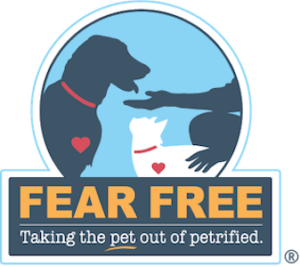Maggie Marton
In January 2019, a study published in PeerJ reported what could be a groundbreaking discovery: Researchers found a link between the microbiome and aggression in a sample of dogs rescued from a dog-fighting bust. The dogs lived in a temporary shelter after rescue and were tested by researchers who classified each dog as either aggressive or non-aggressive. Meanwhile, they collected fecal samples to compare the gut bacteria to the classified behavior. The study concludes:
Ultimately, our results indicate that the composition of the gut microbiome associates with conspecific canine aggression in this group of dogs. These results pave the way for future investigations to ascertain whether similar results are seen in other dog populations and if the microbiome can be used to develop diagnostics, preventative strategies, and therapeutics of aggression.
While the study shows a correlation between the microbiome and the dogs’ behavior, it didn’t explore a cause and effect. Similar correlations between gut health and behavior appear in published studies examining toddlers, mice, and chimpanzees. Researchers continue to explore possibilities and potential therapies. But what does this mean for pet dogs and potential treatments for fear and aggression?
A Breakthrough in Dog Behavior and Gut Health
Lead author Nicole Kirchoff of Oregon State University says that OSU assistant professor and canine behavior researcher Dr. Monique Udell, another author on the paper, was chatting with Kirchoff’s advisor about gut bacteria having an impact on mood disorders and behaviors especially in lab animals, noting that it had never been looked at in dogs. “I’m a dog lover myself,” Kirchoff says, “so I really wanted to grasp at this opportunity to answer this question, if bacteria might be associated with certain behaviors in dogs, in the hopes that I could lay the foundation and maybe eventually we could come up with other treatments or be informed better on how to improve the overall well-being of dogs and their owners.”
The study kicked off with 31 pit-bull-type dogs and examined one type of aggression. Kirchoff acknowledges the small size of the study. She says, “We really need to look at a much larger sample size, different breeds, and different types of aggression. In our study it was specifically aggression toward other dogs.” But, since publication, she says the lab has received offers for collaboration and funding, which might open avenues for deeper exploration.
Unanswered Questions
“My paper is just the very first step. I would really like to see it be much more expanded,” she says. “It would be really cool if we got to a point where we could try some diet interventions or probiotic interventions to see if using some of those treatments could help these aggressive dogs. That’s the future I would like to see: probiotic treatment, prebiotic treatment, diet intervention. But we don’t know if the bacteria cause the aggression or if physiological changes are affecting the gut bacteria.”
The study didn’t provide any clues as to whether gut bacteria could be used as a diagnostic tool or as a treatment; however, the potential is there for others to come in and expand upon the work to answer those questions.
In the meantime, Kirchoff is guarded about the results and the public’s reaction to the data. She says the public interest isn’t surprising because people want their dogs to be happy, and fearful or aggressive dogs aren’t. The potential for therapy is exciting, but she and her team worry about potential exploitation of probiotic products or recommendations that aren’t in line with the science yet. She cautions against the use of probiotics as a cure or treatment until further research has been conducted.
“There’s concern for how the media is interpreting my work and others’ work in this field, which is why my advisor and I specifically wanted to make sure we oversaw the press release the university put out because we wanted to be cautious,” she says.
Ultimately, more research is needed to determine if the findings can lead to therapies to treat aggression in pet dogs. In the meantime, Oregon State University has started a citizen science project, collecting dogs’ stool. For information on how you and your patients can participate, visit the Microbiome & Behavior study.
This article was reviewed/edited by board-certified veterinary behaviorist Dr. Kenneth Martin and/or veterinary technician specialist in behavior Debbie Martin, LVT.





